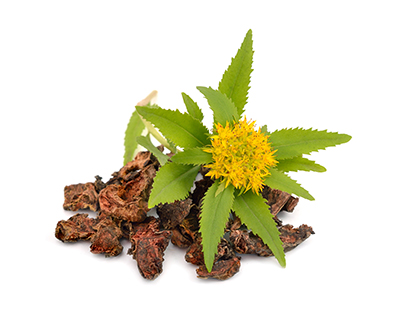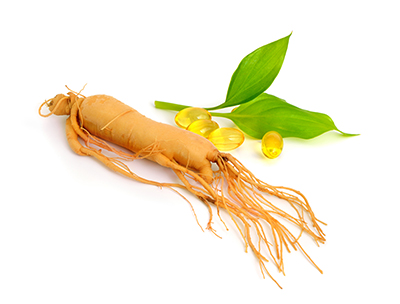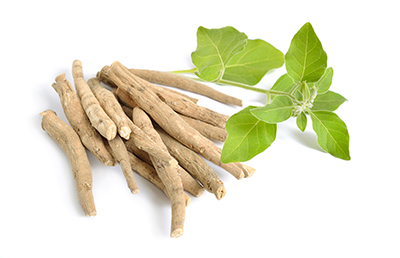Recovering from a Burnout
Feeling run down, overwhelmed, tired, and burnt out? Maybe you are drinking more coffee or craving more sugar to keep going. Have you felt more moody and irritable, and less patient? When stress persists and is not managed, it can lead to a burnout. Secondary conditions could include depression; anxiety; insomnia; and cardiovascular, gastrointestinal, neurological, musculoskeletal, or hormonal problems. Check out my previous article “Signs and Symptoms You May Be Heading for a Burnout.” The question you probably want answered: “How do I recover?”
Current medication usually targets psychological or physical stress symptom.[1] This may be helpful in some cases, but it doesn’t treat the whole person or the root cause of the imbalance. For example, antidepressants are often used because symptoms of burnout closely resemble those of depression.
The problem is they don’t always help someone with a burnout feel better, and they often have uncomfortable side effects. Treatment plans focusing on the whole person are invaluable, as stress and burnout are multifactorial and present differently in each individual. Fatigue and exhaustion are key symptoms, but using stimulants such as sugar and caffeine are not the answer either: They push the adrenal glands to work harder. A healthy diet is crucial for this reason. Eating regular protein- and nutrient-dense foods help to balance blood sugar and support the function of the adrenal glands. Breathing and meditation remind the nervous system to stay calm. Gentle exercise, to tolerance, is also useful as a long-term solution for burnout. Lifestyle changes are essential, but I would like to focus on a fascinating category of medicinal plants called “adaptogens.”
Adaptogens
The term “adaptogen” is used to describe the function of a medicinal plant to help us adapt. Adaptogenic plants have pharmacological components that increase mental and physical endurance and regulate homeostasis, all protecting against stress.[2] They are balancers that help various systems within our bodies normalize. A meta-analysis showed that plant adaptogens could provide a number of benefits in the treatment of chronic fatigue, cognitive impairment, and immune protection.[3] These plants contain compounds that help increase our endurance as well as our vitality (without stimulating) when we are feeling exhausted, and at the same time, these bioactive molecules can also provide a sense of calm and relaxation (without sedating) when the nervous system is too much on a hyperreactive mode, in case of anxiety or panic, for example. Let’s look at a few of these adaptogens.
 Rhodiola rosea
Rhodiola rosea
Rhodiola helps to increase the body’s resistance to stress by normalizing the release of stress hormones. In multiple clinical studies, the use of rhodiola helped improve mental-work capacity, attention, performance, and overall mood. One study using rhodiola showed significant improvements in stress symptoms, fatigue, quality of life, mood, and concentration. Effects were seen as early as three days after starting treatment and continued the whole 28-day duration of the study.[4] Rhodiola has a lot of traditional and pharmacological evidence at improving mental performance and reducing fatigue. It also shows encouraging results with mild depression and anxiety, which often come alongside burnout.[5]
 Siberian Ginseng (Eleutherococcus senticosus)
Siberian Ginseng (Eleutherococcus senticosus)
It is important to mention that there are a lot of ginsengs, each with their own unique set of constituents. Most ginsengs tend to have a stimulatory effect, such as Panax ginseng. This is not always beneficial in burnout, and definitely not recommended for long-term use. Siberian ginseng, or Eleuthero, differs considerably, both chemically and pharmacologically,[6] due to its adaptogenic properties that help to normalize rather than stimulate. In a study on professional burnout, the group receiving Eleuthero showed significant improvements in scores related to burnout, depression, depersonalization, and task management versus placebo.[7] This was seen after 12 weeks of supplementation.
 Ashwagandha (Withania somnifera)
Ashwagandha (Withania somnifera)
Ashwagandha has been used for thousands of years and comes from Ayurveda (traditional Indian medicine). Modern scientific studies report incredible benefits of this plant with regards to stress and burnout. In a study on chronic stress, the group receiving ashwagandha showed a significant reduction in stress scores, and serum cortisol levels were substantially reduced compared to placebo.[8] Another study looking at ashwagandha showed significant improvement in sleep quality in the group taking this extract. It goes on to say that ashwagandha was shown to be beneficial at reducing stress and anxiety.[9] Ashwagandha is considered an adaptogen, but it has also been used traditionally to support sleep, (hence the name, Withania somnifera). It contains a natural compound with sleep-inducing potential and, when given daily in a study, it improved sleep quality and reduced the time it took for patients to fall asleep.[10]
Overall stress and burnout are multifactorial and need to be supported with an integrative approach. Along with mindfulness, breathing, healthy nutrition, and exercise, adaptogenic plants show promising results for burnout recuperation. They deliver many constituents that work to regulate homeostasis via several mechanisms. Numerous clinical trials demonstrate that adaptogens show antifatigue, neuroprotective, antidepressive, anxiolytic, and central nervous system–stimulating activities.[11] In any case, it’s valuable to consult with a naturopathic doctor to get an individualized formula of adaptogens and a specific treatment plan.
 Dr. Krista Mackay, BSc, ND
Dr. Krista Mackay, BSc, ND
Krista practices both in Montreal, Quebec, and Montevideo, Uruguay. A busy mom of two boys, she focuses on naturopathic general/family medicine, helping to find a reasonable balance to optimal wellbeing and stress management, including nutrition, herbal medicine, and mind-body work.
kristamackay.ca
[1] Todorova, V., K. Ivanov, C. Delattre, V. Nalbantova, D. Karcheva-Bahchevanska, and S. Ivanova. “Plant adaptogens—History and future perspectives.” Nutrients, Vol. 13, No. 8 (2021): 2861.
[2] Todovora et al. “Plant adaptogens.”
[3] Todovora et al. “Plant adaptogens.”
[4] Anghelescu, I.-G., D. Edwards, E. Seifritz, and S. Kasper. “Stress management and the role of Rhodiola rosea: A review.” International Journal of Psychiatry in Clinical Practice, Vol. 22, No. 4 (2018): 242–252.
[5] Panossian, A., G. Wikman, and J. Sarris. “Rosenroot (Rhodiola rosea): Traditional use, chemical composition, pharmacology and clinical efficacy.” Phytomedicine, Vol. 17, No. 7 (2020): 481–493.
[6] Davydov, M., and A.D. Krikoria. “Eleutherococcus senticosus (Rupr. & Maxim.) Maxim. (Araliaceae) as an adaptogen: A closer look.” Journal of Ethnopharmacology, Vol. 72, No. 3 (2000): 345–393.
[7] Jacquet, A., A. Grolleau, J. Jove, R. Lassalle, and N. Moore. “Burnout: Evaluation of the efficacy and tolerability of TARGET 1® for professional fatigue syndrome (burnout).” The Journal of International Medical Research, Vol. 43, No. 1 (2015): 54–66.
[8] Chandrasekhar, K., J. Kapoor, and S. Anishetty. “A prospective, randomized double-blind, placebo-controlled study of safety and efficacy of a high-concentration full-spectrum extract of ashwagandha root in reducing stress and anxiety in adults.” Indian Journal of Psychological Medicine, Vol. 34, No. 3 (2012): 255–262.
[9] Salve, J., S. Pate, K. Debnath, and D. Langade. “Adaptogenic and anxiolytic effects of ashwagandha root extract in healthy adults: A double-blind, randomized, placebo-controlled clinical study.” Cureus, Vol. 11, No. 12 (2019): e6466.
[10] Langade, D., S. Kanchi, J. Salve, K. Debnath, and D. Ambegaokar. “Efficacy and safety of ashwagandha (Withania somnifera) root extract in insomnia and anxiety: A double-blind, randomized, placebo-controlled study.” Cureus, Vol. 11, No. 9 (2019): e5797.
[11] Panossian, A. and G. Wikman. “Effects of adaptogens on the central nervous system and the molecular mechanisms associated with their stress-protective activity.” Pharmaceuticals, Vol. 3, No. 1 (2010): 188–224.

 Stores
Stores